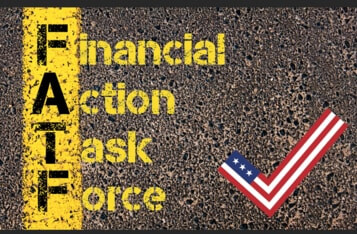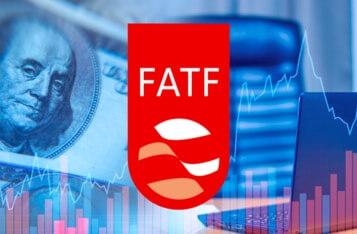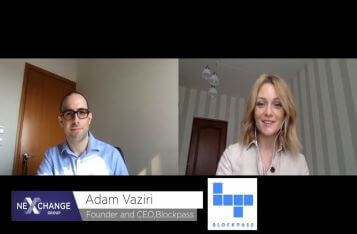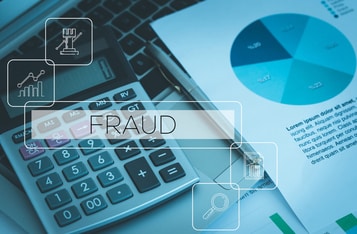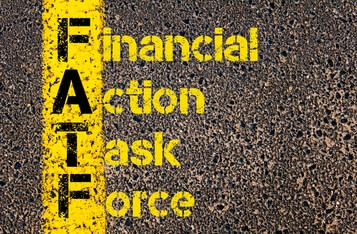Searching for: "
FATF
"FATF
FATF stands for The Financial Action Task Force, which is the global money laundering and terrorist financing watchdog. The inter-governmental body sets international standards that aim to prevent these illegal activities and the harm they cause to society. As a policy-making body, the FATF works to generate the necessary political will to bring about national legislative and regulatory reforms in these areas.
Crypto & the FATF: ING Develops Travel Rule Protocol for Tracking Crypto Transfers Ahead of FATF Plenary Meeting
The FATF has a wide range of recommendations, a total of 40 to ensure regulatory alignment between the compliance imposed on financial institutions and the regulations in its member states. The FATF Travel Rule is Recommendation 16, which has received a lot of attention from the crypto industry, especially virtual asset service providers (VASPs).
FATF Virtual Assets Guidelines for Cryptosphere Review
With the growing concern of virtual assets/cryptocurrencies being used as a medium for the financing of illegal activities, the Financial Action Task Force (FATF) issues revised guidance from time to time to combat money laundering and terrorist financing involving virtual assets (VAs) and virtual asset service providers (VASPs).
FATF Assessment Finds Majority of US Exchanges are Compliant with Virtual Asset Guidance
The Financial Action Task Force (FATF) has published an assessment of the US’s compliance with its revised criteria for anti-money laundering (AML) and terrorist financing (CTF) through virtual assets and found that most virtual asset providers are compliant.
Crypto & the FATF Travel Rule: FinCEN Suggests Challenges in Governance, Not Technology
The Financial Action Task Force (FATF) Travel Rule has been in the center of attention lately, which concerns crypto transactions above a certain amount must be accompanied by identifying information.The rule is an update to the existing FATF Recommendation 16, regarding cross-border and domestic wire transfers, and is intended to address the anti-money laundering (AML) and counter-terrorist financing (CFT) challenges as crypto adoption increases. The FATF Travel Rule could mean implications for virtual asset service providers (VASPs), including cryptocurrency exchanges, wallet providers, and custodians.
Paraguay Begins to Audit Local Crypto Industry to Comply with FATF Guidelines
Paraguay is looking to take its cryptocurrency industry mainstream, in light of the Financial Action Task Force’s (FATF) guidance on virtual asset service providers (VASPs) released earlier this year.
iComply on FATF Travel Rule: Cryptocurrency is Meant to be Trustless, Not Anonymous
iComply Investor Services (iComply) is a regulatory technology (Regtech) company focused on making financial markets more robust, secure, and efficient. We asked their CEO, Matthew Unger for his take on 2019 FATF Travel Rule Guidelines and find out what these recommendations really mean and how should exchanges or VASPs observe them?
Crypto Exchange OKEx Delists Five Privacy Coins due to FATF Rules
Cryptocurrency exchange OKEx’s Korean arm will be delisting all five privacy altcoins including Monero (XMR), Dash (DASH), Zcash (ZEC), Horizen (ZEN), and Super Bitcoin (SBTC).
Exclusive: Blockpass COO, on the Significance of the FATF Travel Rule to VASPs
Personal identity is a fundamental human right according to Article 8 of the United Nation’s Convention on the Rights of the Child. Identity is crucial to a functioning society and economy, however, there are 1.1 billion people in the world that do not have proof of identity and 45% of them are among the poorest 20% around the world. For enterprises, customer data protection can be proven costly as 2.8 billion consumer data records were exposed at an estimated cost of more than $654 million in 2018.
Iranian General Pushes for Crypto Use to Evade US Sanctions and After Being Blacklisted by the FATF
Saeed Muhammad, a commander of the Islamic Revolutionary Guard Corps’ “Army of Guardians of the Islamic Revolution,” called for Iran to use cryptocurrencies to bypass sanctions imposed on his country by the United States.
Indian Minister Reveals Crypto Regulatory Measures to Tame Terrorism
G. Kishan Reddy, India’s Union Minister of State (MoS) for Home Affairs disclosed that the nation would incorporate the standards of the Paris-based Financial Action Task Force (FATF) to deter terrorism by cutting off funding sources, especially cryptocurrencies.
“New FATF regulations will bite next year” NexChange Interview Series with Adam Vaziri, CEO of Blockpass, Part 1
Sign up for Block O2O event “STO: Blockchain Powered Next-level Fintech” on Nov 5th 2019 and get to listen to Adam and Blockpass team’s vision of STO operational hurdles and solution – in person!
FATF Releases Action Plan to Improve Implementation of Global Standards on Crypto
Over 200 governments agreed to tighten the "application of FATF Standards on virtual assets and virtual asset service providers".
FATF's New Guidance on Asset Recovery: Implications for Global Crypto Investigations
The FATF's latest guidance on asset recovery is set to transform how digital assets are seized and managed globally, impacting crypto investigations significantly.
FATF Updates its Guidance to Service Providers to Include DeFi
The Financial Action Task Force (FATF) has updated its guidance governing Virtual Assets and Virtual Asset Service Providers (VASPs) with the inclusion of decentralized finance (DeFi).
FATF Unveils New Guidelines to Enhance Virtual Asset Recovery
The Financial Action Task Force (FATF) introduces comprehensive guidance aimed at improving the recovery of virtual assets, emphasizing the role of blockchain analytics and specialized training.
UK FCA Regulator Proposes Mandatory AML Data Reports from Cryptocurrency Firms
The United Kingdom’s Financial Conduct Authority (FCA) has proposed obligatory AML reporting requirements for crypto exchanges.
Crypto Service Providers Willing to Embrace FATF Travel Rule, Study Shows
The Travel Rule, which now governs service providers in the digital currency ecosystem, is arguably not a source of concern as a new report from Notabene shows many firms in the space are in compliance already.
Exclusive: Is Belarus the Heaven for Tokenized Exchanges?
In this interview with George Paliani, CBDO of Currency.com, we explored the fundamentals of the tokenization of assets and its underlying regulatory requirements. George explained that Currency.com isn’t just an ordinary exchange, where it is a platform with cryptocurrencies and traditional financial products such as commodities, indices, stocks, bonds.



